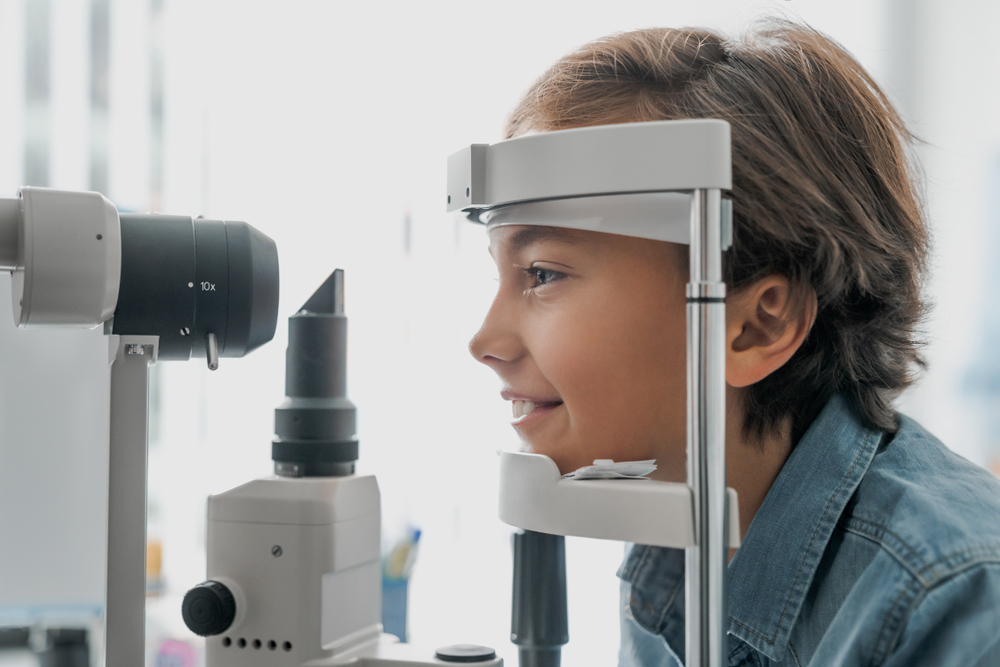
Pediatric eye exams and school vision screenings may seem similar on the surface, but they have distinct purposes and processes. Essentially, they are two different tools used to evaluate and maintain the visual health of children. Recognizing their unique roles and how they interact can give you a clearer perspective and guide you in making the best choices for your child's vision care.
What are Pediatric Eye Exams?
Pediatric eye exams are comprehensive evaluations conducted by optometrists to assess a child's vision and eye health. These exams involve multiple steps and tests designed to detect any potential vision problems or disorders. Common tests include visual acuity tests, color vision tests, depth perception tests, and eye alignment tests.
Unlike regular vision screenings, pediatric eye exams aim to provide a complete understanding of a child's visual health. They are thorough and in-depth, allowing for the detection of a variety of vision issues that may be missed during regular screenings. Pediatric eye exams often involve a detailed review of the child's medical history and a discussion about any vision-related concerns.
Pediatric eye exams are essential for early detection of potential vision problems. Early detection allows for timely treatment, which can significantly improve the child's visual health and overall quality of life. Regular pediatric eye exams can help prevent vision loss and ensure that the child's visual development progresses normally.
Understanding School Vision Screenings
School vision screenings, on the other hand, are basic evaluations typically conducted in schools to identify children who may have visual problems. These screenings are often performed by school nurses, trained volunteers, or eye care professionals. The main goal is to detect apparent vision impairments that may affect a child's academic performance.
Unlike pediatric eye exams, school vision screenings are not comprehensive. They usually involve simple vision tests, such as reading letters or symbols from a distance. These screenings are designed to be quick and efficient, screening large numbers of students in a short period.
Pediatric Eye Exams vs. School Vision Screenings: The Major Differences
Understanding these differences will not only help you make informed decisions but also ensure your child receives the right care at the right time.
The first notable difference is in the comprehensiveness of the procedures. As mentioned, pediatric eye exams are thorough evaluations that involve multiple tests and a detailed review of the child's medical history. On the other hand, school vision screenings are basic evaluations that involve simple tests designed to detect apparent vision problems quickly.
Another significant difference lies in the purpose of the procedures. Pediatric eye exams are geared towards assessing the overall health of a child's eyes and detecting any potential vision problems. School vision screenings, however, primarily aim to identify children with apparent vision impairments that may affect their academic performance.
Lastly, the professionals conducting these procedures also differ. Pediatric eye exams are usually performed by optometrists or ophthalmologists, while school vision screenings are often conducted by school nurses, trained volunteers, or eye care professionals.
Maintain Your Child’s Visual Health through a Comprehensive Eye Exam Today
Pediatric eye exams provide a comprehensive evaluation of your child's visual health, detecting potential problems early and allowing for timely treatment. School vision screenings, while not as thorough, are important for identifying children who may have apparent vision issues, leading to further testing and treatment.
Prioritize your child’s eye health by scheduling a comprehensive eye exam at Davie Family Eye Care in our Davie, Florida office. Call (754) 238-5360 to book an appointment today.







